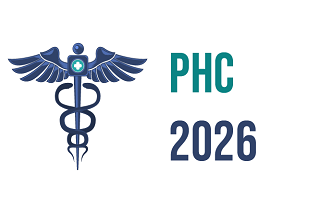5th International Conference on
Primary Health Care
November 26-27, 2026 | Dubai, UAE

PHC 2026

The Wollongong Hospital, Australia
Abstract:
Cobalt poisoning following hip replacement surgery is not widely reported in the Australian literature. However, there have been notable cases of patients experiencing cobalt toxicity in Australia, particularly with the DePuy ASR (articular surface replacement) XL Acetabular Hip System prosthesis containing cobalt and chromium. This prosthesis has been recalled due to these issues.
Cobalt toxicity is a potential complication of metal-on-metal (MoM) hip replacement surgeries. Cobalt toxicity has been identified as an emerging clinical problem in patients with metal-on-metal hip prostheses. This issue has been documented in several Australian patients. Cobalt toxicity can lead to various health problems, including cardiomyopathy, hypothyroidism, lassitude, neuropathy (loss of taste, smell, and hearing), focal and diffuse weakness, and rashes.
The Therapeutic Goods Administration (TGA) in Australia has provided guidance and resources for patients with MoM hip implants.
Case presentations: The author presents the first reported case in the Illawarra and Shoalhaven districts of Wollongong, NSW, Australia. The patient is a 71-year-old male who underwent a Stryker ABGII modular hip prosthesis in 2011. Following his surgery, he continued to experience pain and instability, resulting in prosthetic loosening.
The prosthesis was recalled in 2012, following which his cobalt levels were checked regularly every two years. The patient had a recurrent left hip dislocation and, in 2021, underwent a revision surgery, following which he gradually improved with hip stability, but his symptoms remained unresolved.
Conclusions: Despite reported cases in Australia, there remains a lack of literature to support the extensiveness of Cobalt-related toxicity. The author would like to propose a new terminology, “Cobalt Syndrome,” instead of using Metallosis and Cobaltism due to the lack of scientific validation of those terminologies and to raise awareness within the Australian community on the potential harm secondary to metal-on-metal hip replacement surgeries done in the last two to three decades.
Biography:
Dr. Vaidya Bala is an experienced and highly qualified Rehabilitation Physician with extensive expertise in the assessment and management of various conditions, including traumatic brain injury, musculoskeletal disorders, pain management, spinal injuries, and vocational assessments for individuals with ongoing impairments. He holds multiple accreditations in the field, including certifications in the American Medical Association's Guides to the Evaluation of Permanent Impairment (4th, 5th, and 6th Editions), as well as being a WorkSafe accredited medical practitioner and impairment assessor.
Dr. Bala earned his Bachelor of Medicine, Bachelor of Surgery from the University of Madras, India, and has further distinguished himself through his Fellowship with the Royal Australian College of Physicians and other prestigious qualifications. His career spans senior roles in both public and private rehabilitation services in Australia, including positions at Wollongong, Port Kembla, and Masada Private Hospitals, as well as roles in pain management and brain injury rehabilitation at renowned institutions like Austin Health and Monash Health.
In addition to his clinical work, Dr. Bala is deeply involved in research, particularly in spinal injury services at Austin Health. He is an active member of several professional organizations, including the Royal Australasian College of Physicians, the European Stroke Council, and the International Society of Physical Medicine and Rehabilitation. His diverse experience and commitment to advancing the field make him a leading expert in rehabilitation medicine.
